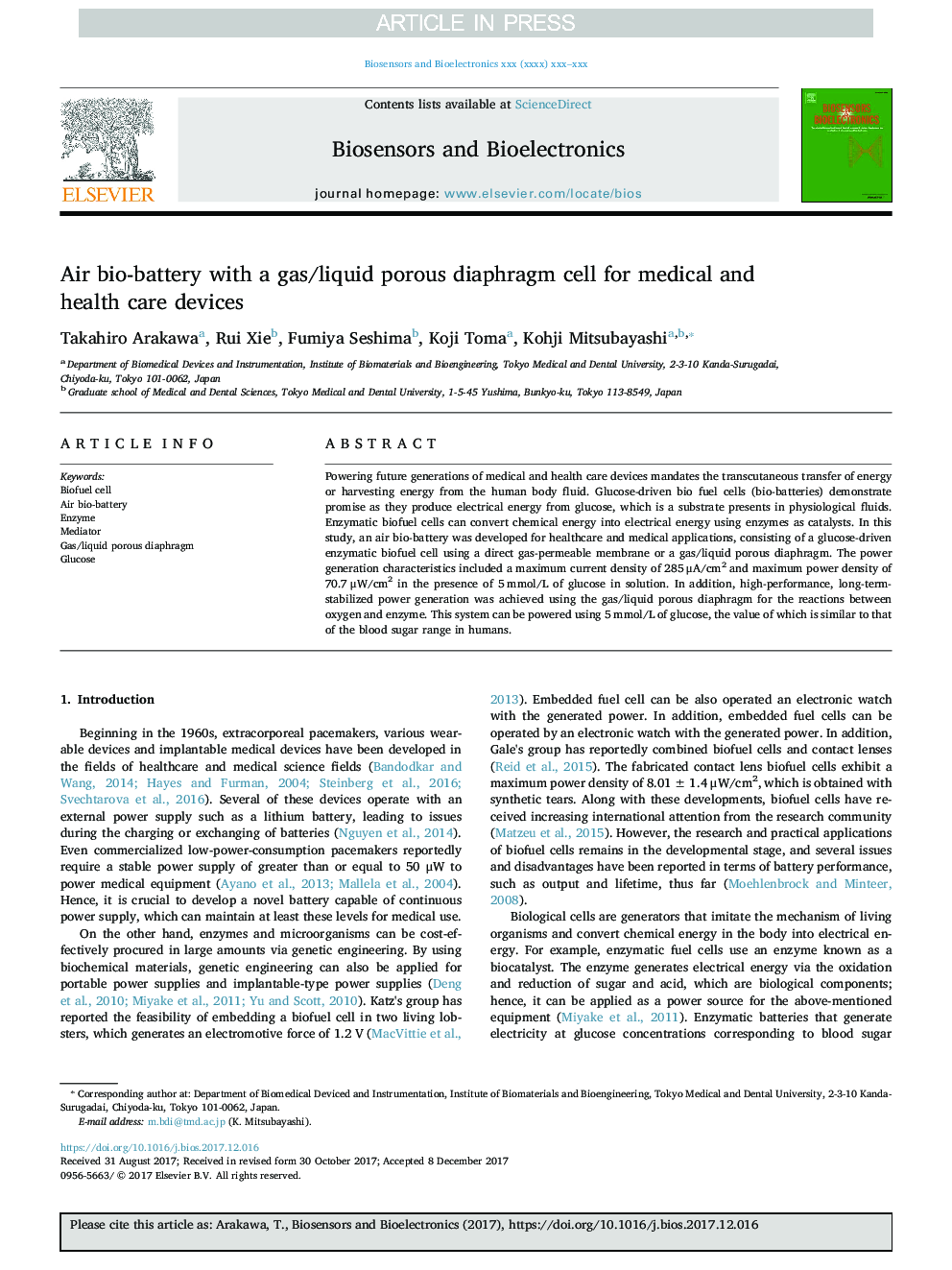| Article ID | Journal | Published Year | Pages | File Type |
|---|---|---|---|---|
| 7229842 | Biosensors and Bioelectronics | 2018 | 5 Pages |
Abstract
Powering future generations of medical and health care devices mandates the transcutaneous transfer of energy or harvesting energy from the human body fluid. Glucose-driven bio fuel cells (bio-batteries) demonstrate promise as they produce electrical energy from glucose, which is a substrate presents in physiological fluids. Enzymatic biofuel cells can convert chemical energy into electrical energy using enzymes as catalysts. In this study, an air bio-battery was developed for healthcare and medical applications, consisting of a glucose-driven enzymatic biofuel cell using a direct gas-permeable membrane or a gas/liquid porous diaphragm. The power generation characteristics included a maximum current density of 285 μA/cm2 and maximum power density of 70.7 μW/cm2 in the presence of 5 mmol/L of glucose in solution. In addition, high-performance, long-term-stabilized power generation was achieved using the gas/liquid porous diaphragm for the reactions between oxygen and enzyme. This system can be powered using 5 mmol/L of glucose, the value of which is similar to that of the blood sugar range in humans.
Keywords
Related Topics
Physical Sciences and Engineering
Chemistry
Analytical Chemistry
Authors
Takahiro Arakawa, Rui Xie, Fumiya Seshima, Koji Toma, Kohji Mitsubayashi,
